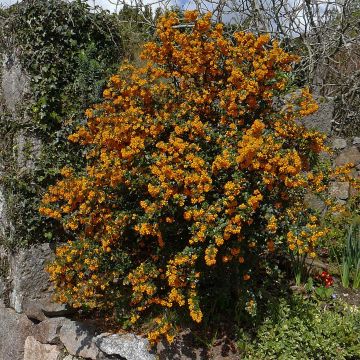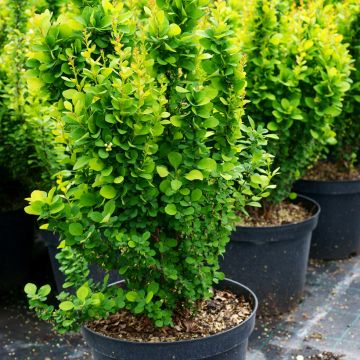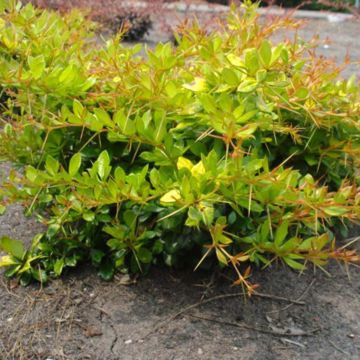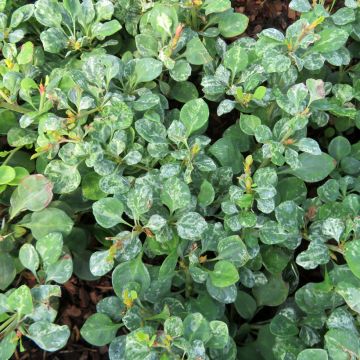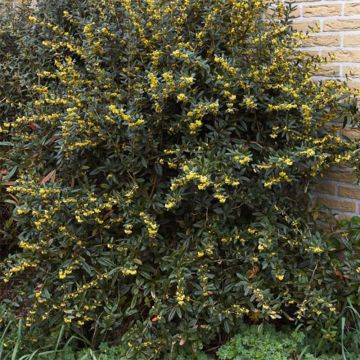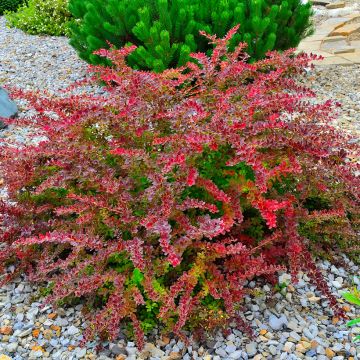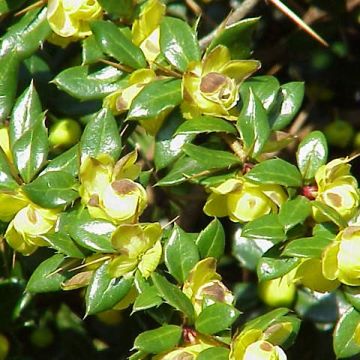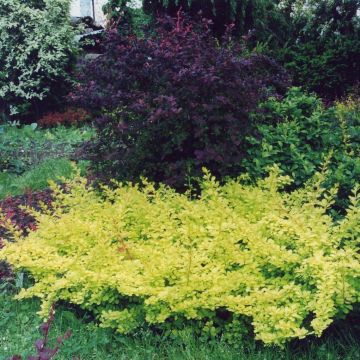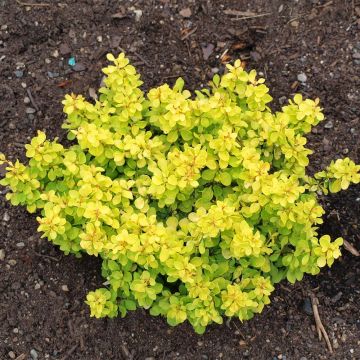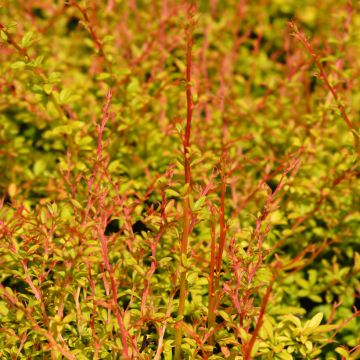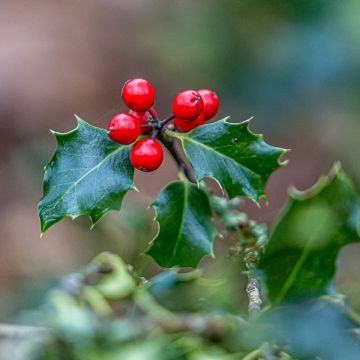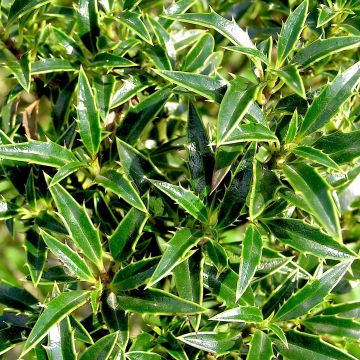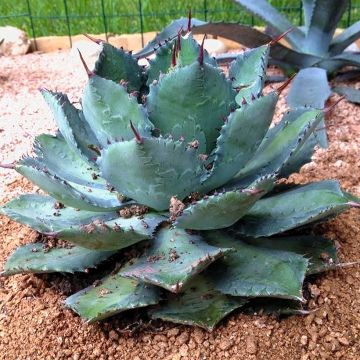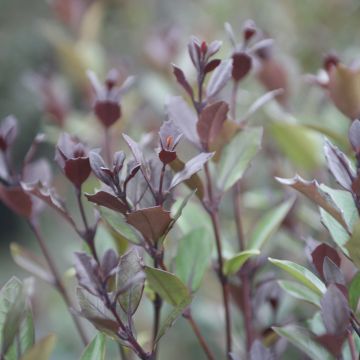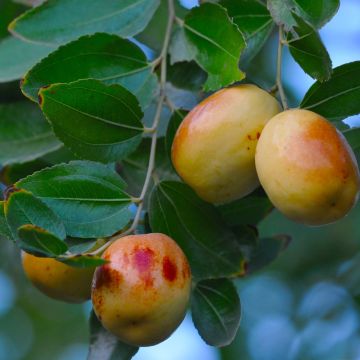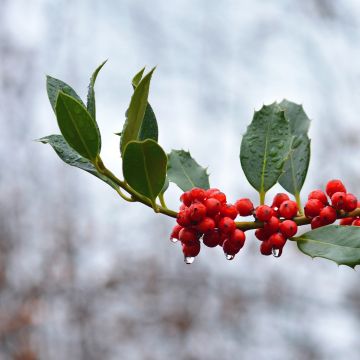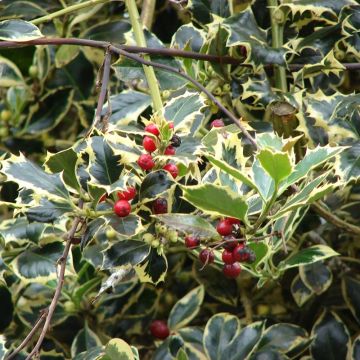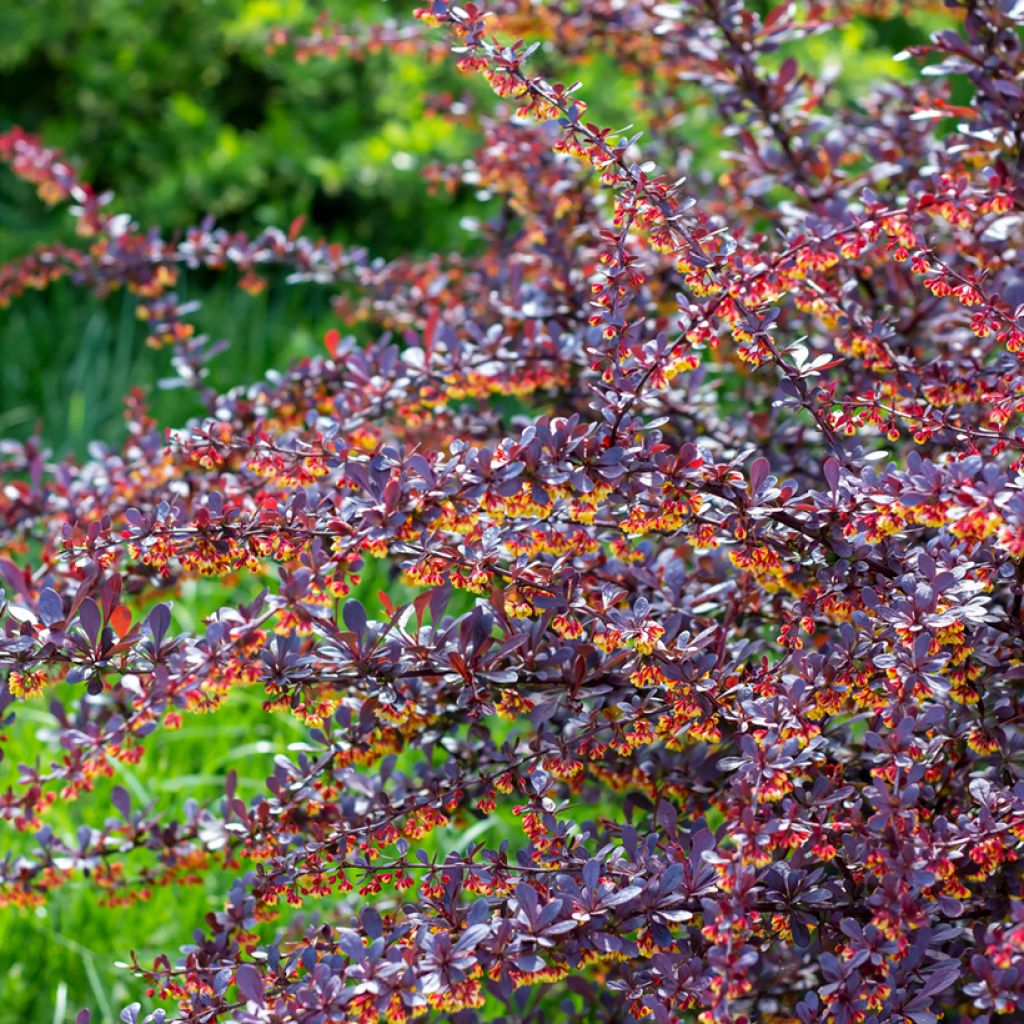

Berberis thunbergii Concorde - Barberry
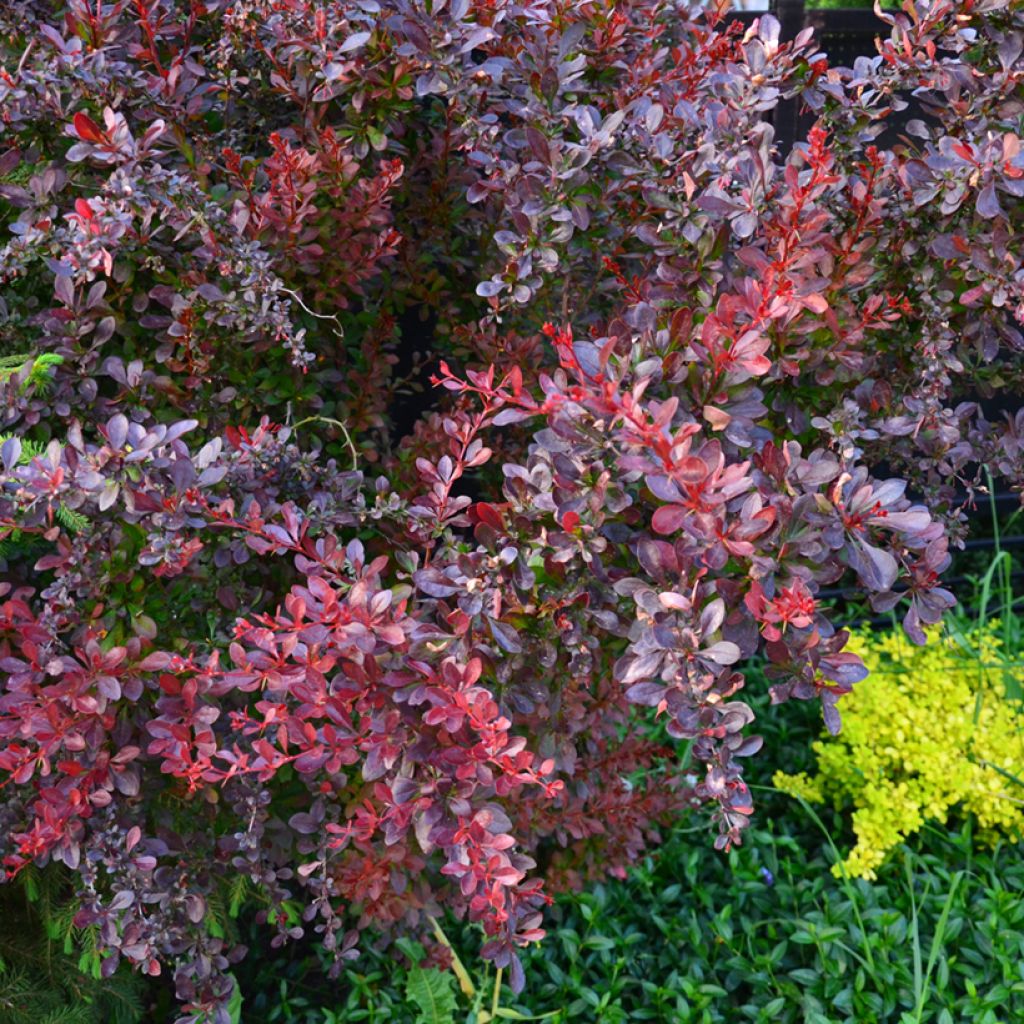

Berberis thunbergii Concorde - Barberry
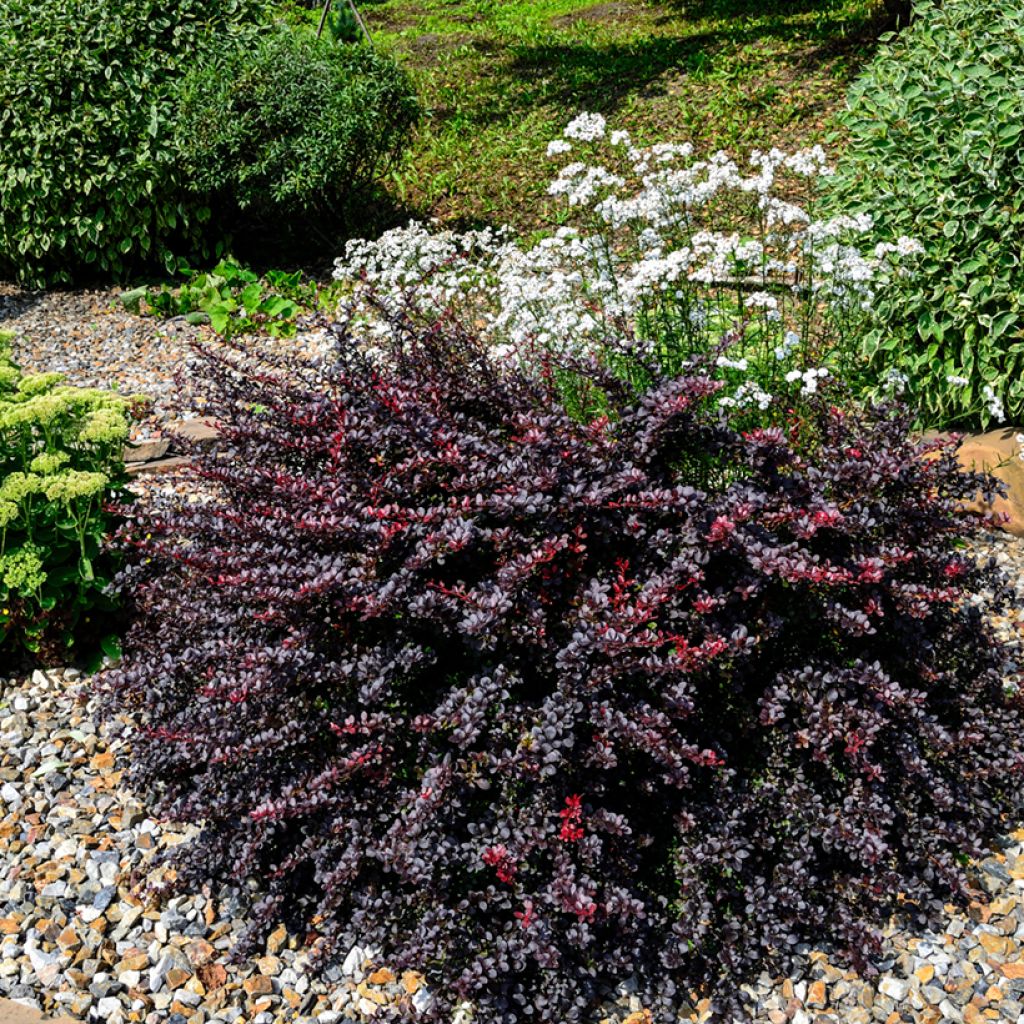

Berberis thunbergii Concorde - Barberry
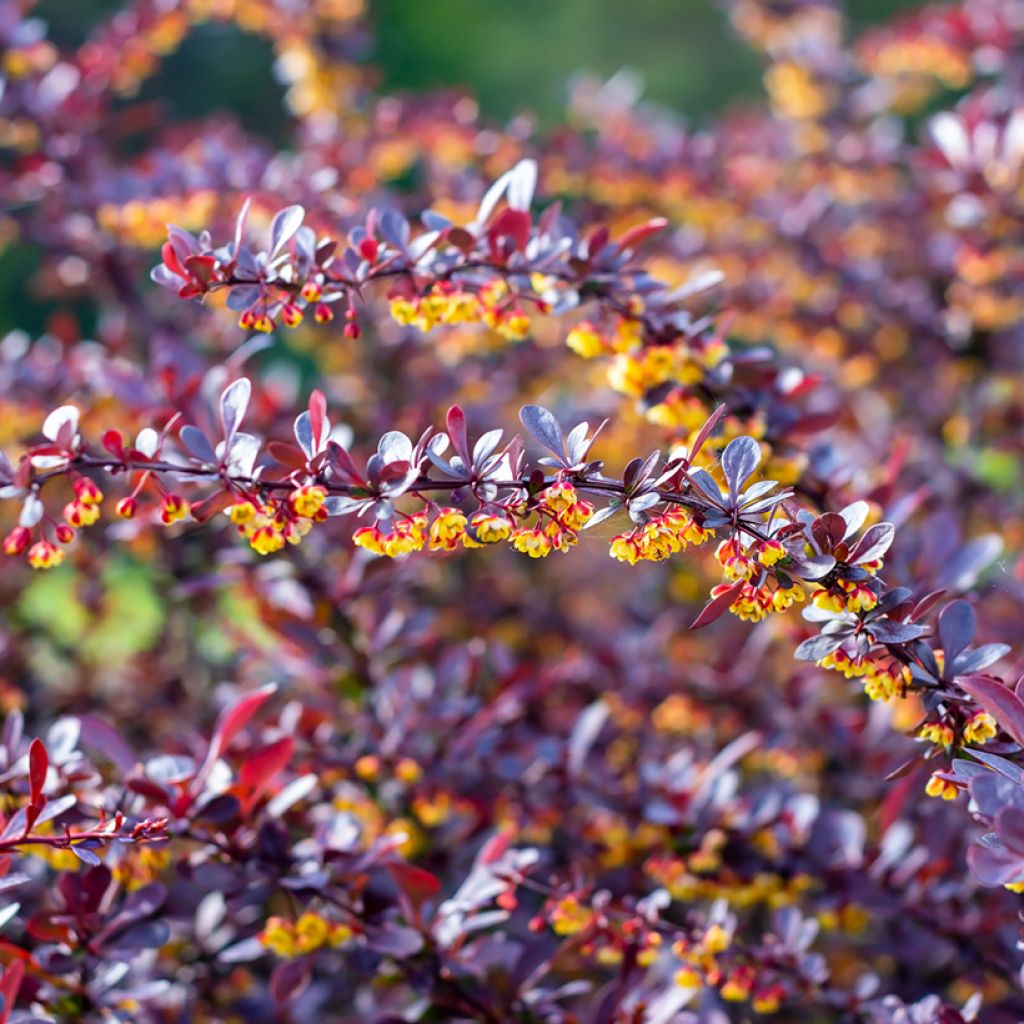

Berberis thunbergii Concorde - Barberry
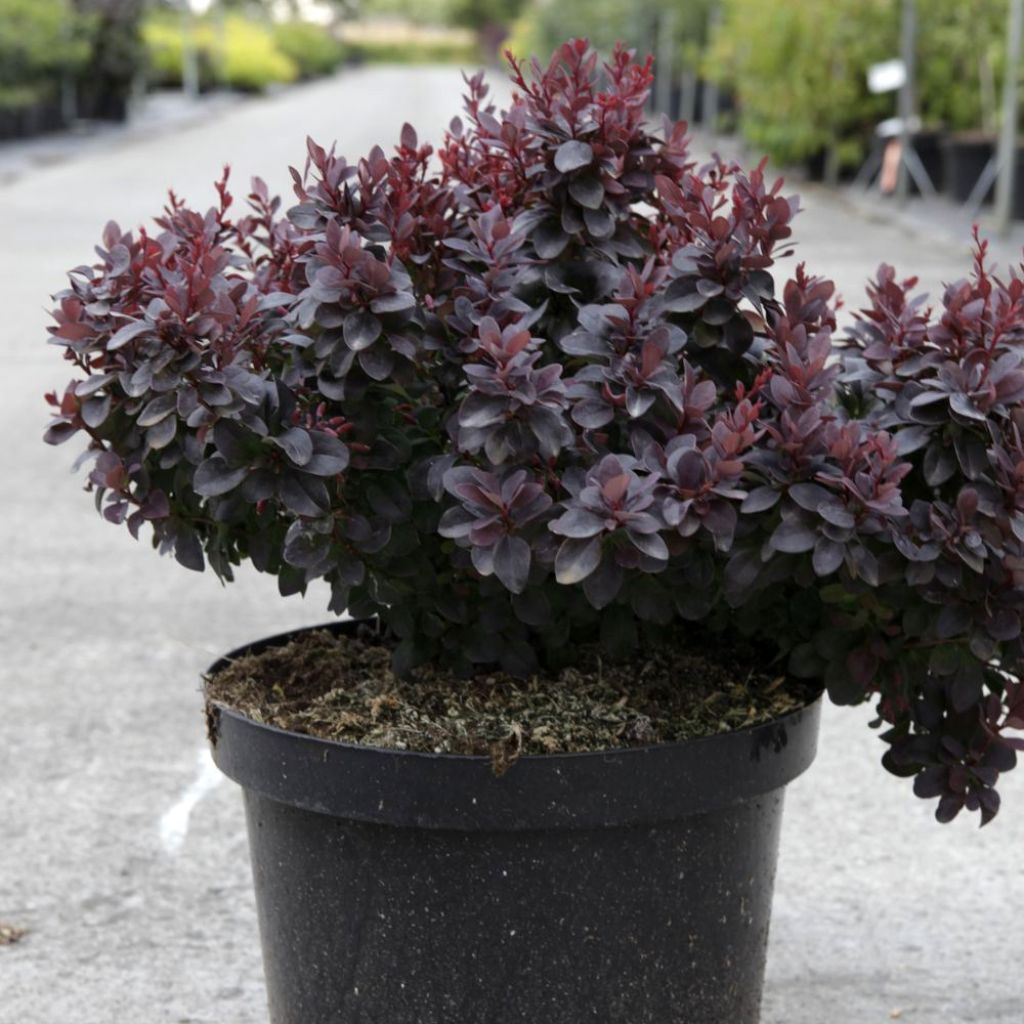

Berberis thunbergii Concorde - Barberry
Berberis thunbergii Concorde - Barberry
Berberis thunbergii Concorde
Japanese Barberry
Quite a few yellow leaves already.
Arnold, 22/10/2022
Special offer!
Receive a €20 voucher for any order over €90 (excluding delivery costs, credit notes, and plastic-free options)!
1- Add your favorite plants to your cart.
2- Once you have reached €90, confirm your order (you can even choose the delivery date!).
3- As soon as your order is shipped, you will receive an email containing your voucher code, valid for 3 months (90 days).
Your voucher is unique and can only be used once, for any order with a minimum value of €20, excluding delivery costs.
Can be combined with other current offers, non-divisible and non-refundable.
Home or relay delivery (depending on size and destination)
Schedule delivery date,
and select date in basket
This plant carries a 24 months recovery warranty
More information
We guarantee the quality of our plants for a full growing cycle, and will replace at our expense any plant that fails to recover under normal climatic and planting conditions.
Would this plant suit my garden?
Set up your Plantfit profile →
Description
The Berberis thunbergii 'Concorde' is an exceptional variety with its dark purple velvety foliage, resistant to strong sun exposure! It offers changing colours from spring to autumn, first with cherry red young shoots and then again with autumnal red foliage. It is a bushy shrub with thin and spiny branches, whose limited growth and particularly slow growth make it suitable for creating beautiful borders or small hedges, or for accompanying other plants in rockeries or flower beds. Easy to grow, it tolerates partial shade and well-drained soils, but its colouration is more intense in full sun.
Berberis thunbergii, also known as Japanese Barberry is a shrub in the Berberidaceae family native to Japan. It is characterized by a bushy, spreading, and low habit, and deciduous foliage, almost evergreen in mild climates. The colour of its foliage intensifies in full sun. Hardy and resistant to temporary drought, it is a very easy shrub to grow in well-drained soils.
The 'Concorde' cultivar is a slow-growing variety, reaching about 60cm (23.6in) in all directions. The branches range in colour from beige to light brown and are erect and well-branched in this variety with small thorns. Its colourful foliage is the main asset of this barberry. It consists of glossy leaves, measuring 2 to 3cm (0.8 - 1.2in) long and obovate (ovate, with the upper part of the leaf wider than the lower part). When they emerge, they show a cherry red colour, then as they mature, they become dark purple. In autumn, they turn red before falling. In May-June, numerous clusters of 1 to 6 small flowers bloom on 1-year-old stems. The bell-shaped flowers, 1cm (0.4 in) long, are pale yellow marked with red. They are very nectar-rich and are followed in September-October by small bright red spherical fruits, 6 to 8mm (0.2 - 0.3in) long, which persist on the branches for part of the winter.
Thunberg's Barberry is a very accommodating shrub in terms of soil, tolerating pruning very well, but clearly preferring sunny exposures. It is a shame to confine it to the role of a monochrome and anonymous defensive hedge shrub; while it fulfills this mission perfectly, its personality is stifled and its naturally graceful habit is completely obscured. The velvety foliage of 'Concorde' deserves a prime location in front of larger shrubs with pink flowers (Kolkwitzia, Abelia, Abeliophyllum distichum 'Roseum'), red flowers (Japanese Quinces, roses, Weigelas), or even yellow to orange flowers (Kerria japonica, Genista Lena Orange, Dropmore Scarlett Honeysuckle). To create strong contrasts, it can also be paired with the silver foliage of small artemisias like 'Little Mice' or the variegated cream foliage of perennials like 'herbes aux goutteux panachées'.
Report an error about the product description
Berberis thunbergii Concorde - Barberry in pictures


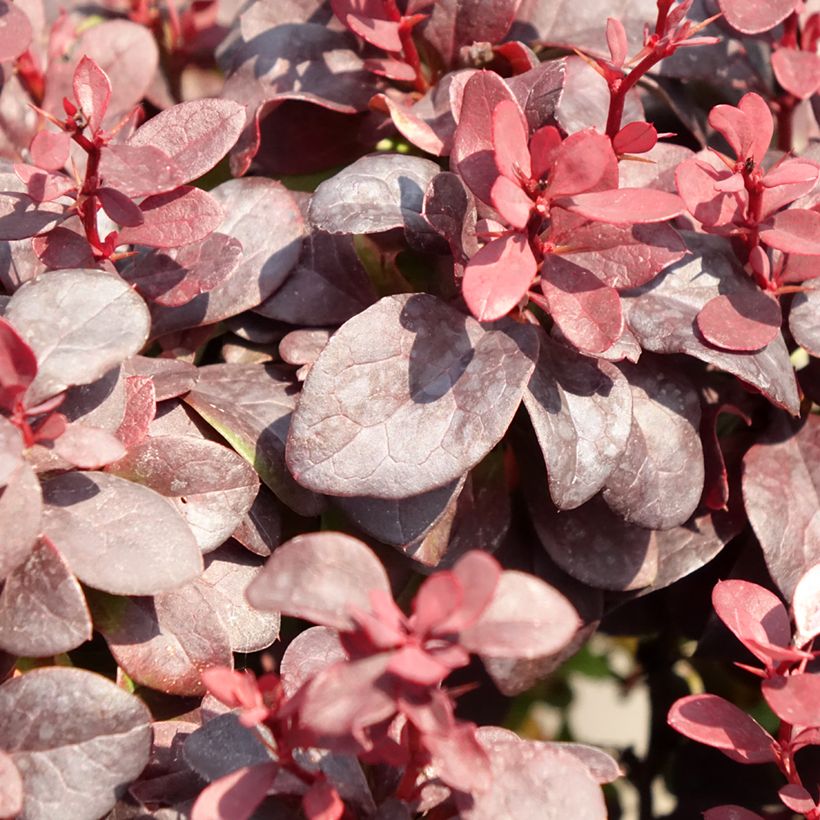



Plant habit
Flowering
Foliage
Botanical data
Berberis
thunbergii
Concorde
Berberidaceae
Japanese Barberry
Cultivar or hybrid
Other Berberis - Barberries
View all →Planting and care
Berberis thunbergii 'Concorde' thrives in full sun or partial shade, with autumn colours being more intense in the sun. It is a plant that tolerates drought and harsh winters well. Plant it in any type of soil as long as it is well-drained. The planting hole should be twice the size of the root ball. Space the Berberis about 80cm (31.5in) apart from each other. Add compost and water well. It is a bush that tolerates pruning very well. From June to August, after flowering, cut back the faded branches to the level of the young lateral shoots to encourage the growth of new branches. Be careful not to touch the branches with bare hands as they have thorns that are difficult to remove once they penetrate the skin. Berberis thunbergii can be susceptible to powdery mildew and black leaf spots. Aphids can also infest it.
Planting period
Intended location
Care
-
, onOrder confirmed
Reply from on Promesse de fleurs
Similar products
Haven't found what you were looking for?
Hardiness is the lowest winter temperature a plant can endure without suffering serious damage or even dying. However, hardiness is affected by location (a sheltered area, such as a patio), protection (winter cover) and soil type (hardiness is improved by well-drained soil).

Photo Sharing Terms & Conditions
In order to encourage gardeners to interact and share their experiences, Promesse de fleurs offers various media enabling content to be uploaded onto its Site - in particular via the ‘Photo sharing’ module.
The User agrees to refrain from:
- Posting any content that is illegal, prejudicial, insulting, racist, inciteful to hatred, revisionist, contrary to public decency, that infringes on privacy or on the privacy rights of third parties, in particular the publicity rights of persons and goods, intellectual property rights, or the right to privacy.
- Submitting content on behalf of a third party;
- Impersonate the identity of a third party and/or publish any personal information about a third party;
In general, the User undertakes to refrain from any unethical behaviour.
All Content (in particular text, comments, files, images, photos, videos, creative works, etc.), which may be subject to property or intellectual property rights, image or other private rights, shall remain the property of the User, subject to the limited rights granted by the terms of the licence granted by Promesse de fleurs as stated below. Users are at liberty to publish or not to publish such Content on the Site, notably via the ‘Photo Sharing’ facility, and accept that this Content shall be made public and freely accessible, notably on the Internet.
Users further acknowledge, undertake to have ,and guarantee that they hold all necessary rights and permissions to publish such material on the Site, in particular with regard to the legislation in force pertaining to any privacy, property, intellectual property, image, or contractual rights, or rights of any other nature. By publishing such Content on the Site, Users acknowledge accepting full liability as publishers of the Content within the meaning of the law, and grant Promesse de fleurs, free of charge, an inclusive, worldwide licence for the said Content for the entire duration of its publication, including all reproduction, representation, up/downloading, displaying, performing, transmission, and storage rights.
Users also grant permission for their name to be linked to the Content and accept that this link may not always be made available.
By engaging in posting material, Users consent to their Content becoming automatically accessible on the Internet, in particular on other sites and/or blogs and/or web pages of the Promesse de fleurs site, including in particular social pages and the Promesse de fleurs catalogue.
Users may secure the removal of entrusted content free of charge by issuing a simple request via our contact form.
The flowering period indicated on our website applies to countries and regions located in USDA zone 8 (France, the United Kingdom, Ireland, the Netherlands, etc.)
It will vary according to where you live:
- In zones 9 to 10 (Italy, Spain, Greece, etc.), flowering will occur about 2 to 4 weeks earlier.
- In zones 6 to 7 (Germany, Poland, Slovenia, and lower mountainous regions), flowering will be delayed by 2 to 3 weeks.
- In zone 5 (Central Europe, Scandinavia), blooming will be delayed by 3 to 5 weeks.
In temperate climates, pruning of spring-flowering shrubs (forsythia, spireas, etc.) should be done just after flowering.
Pruning of summer-flowering shrubs (Indian Lilac, Perovskia, etc.) can be done in winter or spring.
In cold regions as well as with frost-sensitive plants, avoid pruning too early when severe frosts may still occur.
The planting period indicated on our website applies to countries and regions located in USDA zone 8 (France, United Kingdom, Ireland, Netherlands).
It will vary according to where you live:
- In Mediterranean zones (Marseille, Madrid, Milan, etc.), autumn and winter are the best planting periods.
- In continental zones (Strasbourg, Munich, Vienna, etc.), delay planting by 2 to 3 weeks in spring and bring it forward by 2 to 4 weeks in autumn.
- In mountainous regions (the Alps, Pyrenees, Carpathians, etc.), it is best to plant in late spring (May-June) or late summer (August-September).
The harvesting period indicated on our website applies to countries and regions in USDA zone 8 (France, England, Ireland, the Netherlands).
In colder areas (Scandinavia, Poland, Austria...) fruit and vegetable harvests are likely to be delayed by 3-4 weeks.
In warmer areas (Italy, Spain, Greece, etc.), harvesting will probably take place earlier, depending on weather conditions.
The sowing periods indicated on our website apply to countries and regions within USDA Zone 8 (France, UK, Ireland, Netherlands).
In colder areas (Scandinavia, Poland, Austria...), delay any outdoor sowing by 3-4 weeks, or sow under glass.
In warmer climes (Italy, Spain, Greece, etc.), bring outdoor sowing forward by a few weeks.






























